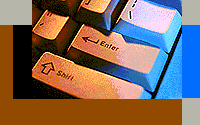Progressive or Critical Strategies
 Contemporary critical pedagogies are part of a vibrant tradition of progressive education that connects social or political change directly to education. These pedagogies rest on the idea of teaching for change, which is central to the pedagogy I am advocating in this webtext. Critical pedagogy in its various guises (and they are many) offers a general means of understanding teaching practices in the context of broad social goals and provides specific pedagogical approaches for fostering critical awareness in students such that those goals can be achieved. What is important about these efforts for a nondualist pedagogy intended to promote sustainability is that they all assume teaching to be a subject-forming activity. I have argued here that we must teach in ways that foster a particular kind of self, and I would suggest that critical pedagogies have a similar goal. Consider, for example, John Dewey's ideas about the central role of experience in learning or Paulo Freire's influential method of drawing directly from his students' lived experiences in the world for the content of his pedagogy. Both these approaches to education in effect provide frameworks for subject-forming pedagogies that attempt to foster a particular sense of self. The same could be said of many contemporary critical pedagogies – for example, Kathleen Weiler's (1988) feminist critical pedagogy. In addition, these critical approaches, I would submit, represent efforts to encourage ways of being-in-the-world that rest on a conception of self as socially constituted and fundamentally inter-connected with other selves.
Contemporary critical pedagogies are part of a vibrant tradition of progressive education that connects social or political change directly to education. These pedagogies rest on the idea of teaching for change, which is central to the pedagogy I am advocating in this webtext. Critical pedagogy in its various guises (and they are many) offers a general means of understanding teaching practices in the context of broad social goals and provides specific pedagogical approaches for fostering critical awareness in students such that those goals can be achieved. What is important about these efforts for a nondualist pedagogy intended to promote sustainability is that they all assume teaching to be a subject-forming activity. I have argued here that we must teach in ways that foster a particular kind of self, and I would suggest that critical pedagogies have a similar goal. Consider, for example, John Dewey's ideas about the central role of experience in learning or Paulo Freire's influential method of drawing directly from his students' lived experiences in the world for the content of his pedagogy. Both these approaches to education in effect provide frameworks for subject-forming pedagogies that attempt to foster a particular sense of self. The same could be said of many contemporary critical pedagogies – for example, Kathleen Weiler's (1988) feminist critical pedagogy. In addition, these critical approaches, I would submit, represent efforts to encourage ways of being-in-the-world that rest on a conception of self as socially constituted and fundamentally inter-connected with other selves.
Building on such foundations, we can develop writing and reading pedagogies that emphasize students' places in the world in a way that does not dramatically separate the intellectual and the physical. Such pedagogies could encourage critical reflection on our sense of being and examine the ethical responsibilities that grow out of our place in the world in relation to one another. Moreover, such pedagogies should present writing not exclusively as a technology for communication or a mode of academic inquiry but also as a means of expression of and inquiry into our ways of understanding ourselves as living beings.
This purpose is related to Freire's view that to be literate is to become fully human. Freire holds that a critical literacy of the kind he promotes can enable students to understand themselves as becoming and as capable of constructing and therefore changing reality. (See especially chapter 3 in Pedagogy of the Oppressed.) But Freire's pedagogy rests on a definition of "human" that is a version of the same Western conception of self that I have critiqued in this webtext; that is, for Freire, humans are fundamentally intellectual beings who are understood as separate from the physical environment they inhabit. (Context, which is crucial for Freire's pedagogy, is nevertheless a function of economic and political systems that are human creations; he does not directly account for the important role of the larger nonhuman world of which we are a part.) I am suggesting that Freire's pedagogical project could serve the goal of sustainability – which is, after all, a political goal as well as an environmental one – if it is informed by a nondualist understanding of the self. (Arlene Plevin [2001] has written persuasively about the compatibility between Freire's conception of conscientization, or critical consciousness, and the goal of fostering a deep and complex sense of place in student writers.) Ultimately, our purpose is to enable students to learn ways of using written language that can serve them well in a changing and increasingly technological world and enable them to claim the political agency that Freire seeks, but to do so in a way that fosters a radically altered sense of being that rests on an inherent interconnectedness among living beings and the physical world.
Teaching With Technology for a Sustainable Future | Works Cited